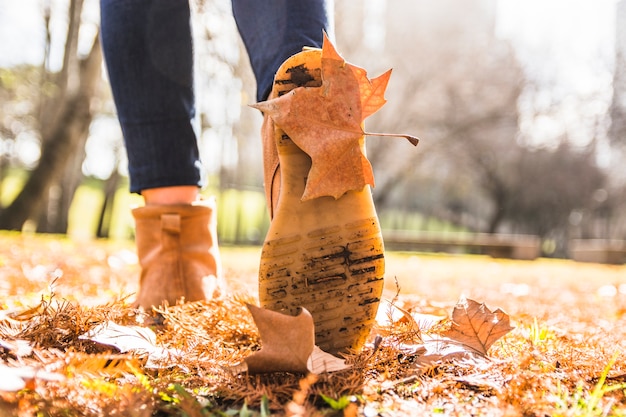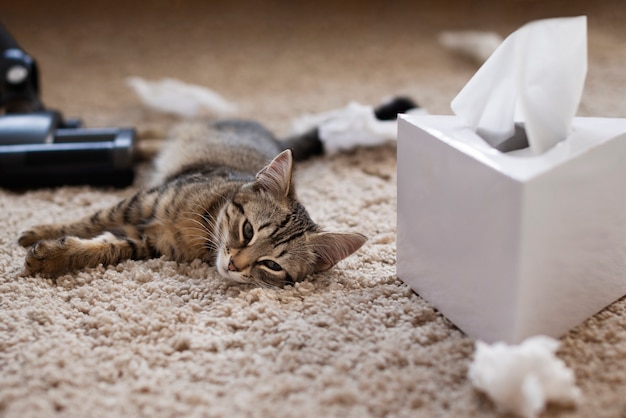Autumn Hazards in Wesley Chapel: Keep Pets Safe from Fall Emergencies

Autumn Hazards in Wesley Chapel: Keep Pets Safe from Fall Emergencies
As autumn arrives in Wesley Chapel and the surrounding communities, the season brings more than just milder weather and colorful landscapes. For pet owners, fall is a time to stay alert to unique hazards that can quickly turn a relaxing day into an urgent visit to the veterinarian. At VetCheck Pet Urgent Care Center - Wesley Chapel, we understand how quickly pet emergencies can arise—especially with the changes that come with Florida’s warm fall season. Whether your pet encounters a seasonal toxin, suffers an unexpected injury outdoors, or suddenly develops symptoms that worry you, fast action is essential. Walk-ins are always welcome at our Wesley Chapel location, and no appointment is needed. Our veterinary professionals are here to provide immediate care when your regular vet is closed or unavailable.
In this comprehensive guide, we will explore the most common fall pet emergencies in Wesley Chapel, why these hazards increase during autumn, and practical seasonal pet safety tips to help you protect your furry family members. You’ll also learn when it’s time to seek urgent care and how the team at VetCheck Pet Urgent Care Center is ready to help with everything from toxin exposures to outdoor injuries. If you are searching for an "emergency vet near me," know that our clinic is committed to supporting your pet’s health during every season.
Recognizing Fall Pet Emergencies in Wesley Chapel
Florida’s autumn may be less dramatic than in other parts of the country, but the shift in weather, increased outdoor activities, and seasonal events can all present new risks to your pets. Recognizing the signs of a fall-related emergency is the first step in ensuring your pet receives the care they need without delay.
Key Symptoms of Autumn Emergencies
Pets experiencing a fall emergency may show symptoms such as sudden vomiting or diarrhea, excessive drooling, difficulty breathing, lethargy, or collapse. Other warning signs include visible wounds, bleeding, limping after outdoor play, or signs of eye injuries, such as squinting or discharge. You might also notice your dog or cat pawing at their mouth or acting disoriented, which can signal toxin exposure or other urgent problems. In the case of toxic plant or mushroom ingestion, symptoms can develop rapidly and may include seizures or extreme weakness.
If your pet suddenly shows any of these symptoms, especially after time outdoors, do not wait to seek professional help. Our emergency veterinary care services in Wesley Chapel are designed to provide immediate support for these urgent conditions.
Why Do Fall Hazards Increase for Pets in Wesley Chapel?
With the arrival of autumn, pet owners in Wesley Chapel often enjoy longer walks, hiking trips, and more time in local parks. However, these seasonal changes bring a new set of risks that aren’t always obvious at first glance.
Outdoor Activities and Environmental Hazards
Cooler weather encourages both people and pets to spend additional time outside. This increased activity means your dog or cat is more likely to encounter hazards such as fallen branches, sharp objects hidden in leaf piles, or unfamiliar plants and mushrooms. In Florida, the rainy season extends into fall, creating damp conditions that promote mushroom growth—many of which are toxic to pets if ingested.
Halloween and harvest decorations, including pumpkins, corn cobs, and seasonal treats, can be tempting for pets but may cause gastrointestinal blockages or poisoning. Rodent and insect activity often increases as temperatures drop, leading to the use of baits and pesticides around homes and parks. These substances are highly toxic to pets and can lead to sudden, severe symptoms if ingested.
Increased Allergen Exposure
Autumn can also trigger environmental allergies in pets. As leaves fall and mold counts rise, dogs and cats may start to develop itchy skin, watery eyes, or respiratory symptoms. If your pet seems more uncomfortable than usual, especially after outdoor excursions, they could be reacting to seasonal allergens common in the Wesley Chapel area. Our pet allergy management services can help you manage these symptoms before they lead to more serious health concerns.
How We Treat Fall Pet Emergencies in Wesley Chapel
When a fall emergency strikes, immediate assessment and intervention are crucial. At VetCheck Pet Urgent Care Center - Wesley Chapel, our veterinary team is equipped to diagnose and treat a wide range of urgent conditions that become more common during the autumn months.
Diagnostics and Rapid Evaluation
Upon arrival, your pet will receive a thorough physical examination. Depending on their symptoms, we may recommend in-house diagnostics such as bloodwork, urinalysis, or imaging to quickly determine the underlying issue. For injuries like lacerations or limping, our team may use X-rays to rule out fractures or internal damage. Immediate access to these diagnostic tools allows us to begin treatment without unnecessary delays.
Treatment Options for Common Emergencies
Treatment for fall emergencies varies based on the cause. For toxin exposures, we may induce vomiting, administer activated charcoal, or provide intravenous fluids to support your pet’s recovery. In cases of lacerations or wounds, our veterinarians can perform laceration repair surgery right here in Wesley Chapel. Pets suffering from severe allergy symptoms may need antihistamines, anti-inflammatory medications, or supportive care to relieve itching and prevent secondary infections. If your pet ingests a foreign object or begins vomiting or having diarrhea, we are equipped to provide prompt care and, if needed, hospitalization for monitoring and treatment.
Throughout the process, our veterinary professionals will keep you informed and involved in every step of your pet’s care. If you are ever unsure whether your pet’s symptoms are an emergency, our team is always available to provide guidance and immediate support.
Seasonal Pet Safety Tips for Autumn in Wesley Chapel
While not every accident can be prevented, there are practical steps you can take to reduce your pet’s risk of fall emergencies in Wesley Chapel and the surrounding area.
Keeping Your Pet Safe Outdoors
Start by supervising your pet during outdoor activities, especially after storms or heavy rains that might leave debris or toxic mushrooms in your yard. Remove fallen branches, check for sharp objects in leaf piles before allowing your dog to play, and discourage your pet from eating unknown plants or fungi. Consider walking your pet on a leash in unfamiliar areas where bait traps or pesticides could be present.
If you decorate your home or yard for autumn, keep all decorations, especially food items like corn cobs and pumpkins, out of your pet’s reach. These items may seem harmless but can cause digestive blockages or upset stomachs.
Managing Allergies and Indoor Hazards
Keep an eye on your pet for new signs of allergies, including frequent scratching, licking, or watery eyes. Wipe your pet’s paws and coat after walks to remove pollen, mold, or other irritants that may have collected during outdoor play. Store all pesticides, rodent baits, and household cleaners securely, and make sure your pet can’t access the garage or shed where these substances are often kept.
If your pet is prone to allergies, consider scheduling a consultation for pet allergy management. Our veterinary team in Wesley Chapel can help you identify triggers and develop a personalized plan to keep your pet comfortable throughout the season.
When to Seek Immediate Veterinary Care for Fall Emergencies
Knowing when to seek urgent care can make all the difference in your pet’s outcome. Some situations call for immediate attention by an "urgent care vet near me," especially when your regular veterinarian isn’t available.
Emergency Scenarios That Require Immediate Action
If your pet ingests any unknown plant, mushroom, or household chemical, experiences sudden vomiting or diarrhea, collapses, has difficulty breathing, or suffers a visible injury, don’t wait to see if symptoms improve. Other urgent signs include persistent pawing at the mouth, severe swelling, bleeding that doesn’t stop, or sudden changes in behavior.
If you suspect poisoning, you can also contact resources like the Pet Poison Helpline or ASPCA Poison Control for immediate advice, but prompt veterinary evaluation remains essential. For injuries such as cuts, limping, or eye trauma, our emergency and urgent care services in Wesley Chapel are available to address your pet’s needs without an appointment—walk-ins are always welcome.
Remember, acting quickly can prevent complications and help your pet recover more comfortably. When in doubt, it’s always safer to err on the side of caution and bring your pet in for professional assessment.
Trust VetCheck Pet Urgent Care Center - Wesley Chapel for Fall Pet Emergencies
As the autumn season unfolds in Wesley Chapel and the surrounding communities, staying proactive about seasonal pet safety tips can help protect your dog or cat from unexpected emergencies. By recognizing the signs of fall hazards, taking preventive measures, and knowing when to seek urgent veterinary care, you can enjoy the season with peace of mind.
At VetCheck Pet Urgent Care Center - Wesley Chapel, our dedicated veterinarians are here when you need us most. If you ever find yourself searching for an "emergency vet near me" or need immediate support for a fall pet emergency, remember that no appointment is needed and walk-ins are always welcome at our Wesley Chapel location. For quick access to emergency and urgent care services in Wesley Chapel, rely on our expertise to deliver compassionate, timely care when seconds count.
If you have questions about your pet’s symptoms, or need advice about fall safety, call us at (813) 365-7004 or stop by our clinic. Your pet’s health and safety are always our top priority, and our veterinary professionals are honored to be your trusted resource for fall pet emergencies and more.
This blog is intended for educational purposes and does not replace professional veterinary advice. If your pet is experiencing symptoms of an emergency, seek immediate veterinary care.


















